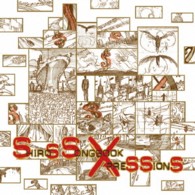- ホーム
- > 洋書
- > 英文書
- > History / World
Full Description
Most Favored Nation discusses the movement for tariff revision under Republican administrations in the critical years preceding World War I. Paul Wolman shows how and why some Republicans turned away from their party's -- and the nation's -- traditional tariff reduction and revision. Wolman describes how the revisionists of this period developed a comprehensive program that sought to replace the ""logrolling"" system of protectionist interest trading that had prevailed in the United States since the 1860s. In its place they proposed a multiple-rate tariff embodying substantial reductions; commercial reciprocity agreements, especially with Germany, France, and Canada; and a ""scientific"" tariff administered by a commission.
According to Wolman, all revisionists hoped to further American leadership in an open-door world economy. But as their movement developed, revisionists split into two competing groups. One group, the ""radical"" revisionists, wished to use lower tariffs to restrain the growing power of corporations. Led by agricultural implement manufacturer H.E. Miles of Wisconsin, the radical revisionists hoped that freer importation of goods such as steel bars and billets would break the growing strangehold of U.S. Steel and International Harvester on markets for intermediate goods and restore more competitive pricing.
The second group, or ""cooperationists,"" accepted the emerging hegemony of large corporations, which were beginning to supplant traditional American propriety enterprises. Encouraged by Theodore Roosevelt and William Howard Taft, these revisionists worked to rationalize the emerging corporate market system and U.S. foreign commercial relations without promoting anticorporate activism.
Wolman suggests that through both consensus and conflict, the Republican revisionists of the McKinley, Roosevelt, and Taft era laid the foundation for modern systems of liberal trade. In detailing how they did so, Wolman offers new insights not only on the tariff question but also on related concerns in U.S. foreign economic policy, including business-state relations, corporate development, international treaty making, and imperialism.
A UNC Press Enduring Edition -- UNC Press Enduring Editions use the latest in digital technology to make available again books from our distinguished backlist that were previously out of print. These editions are published unaltered from the original, and are presented in affordable paperback formats, bringing readers both historical and cultural value.







